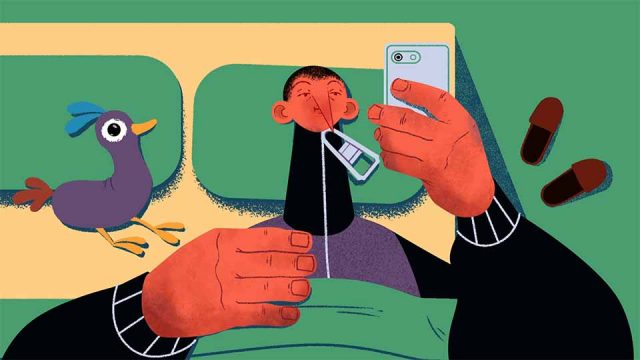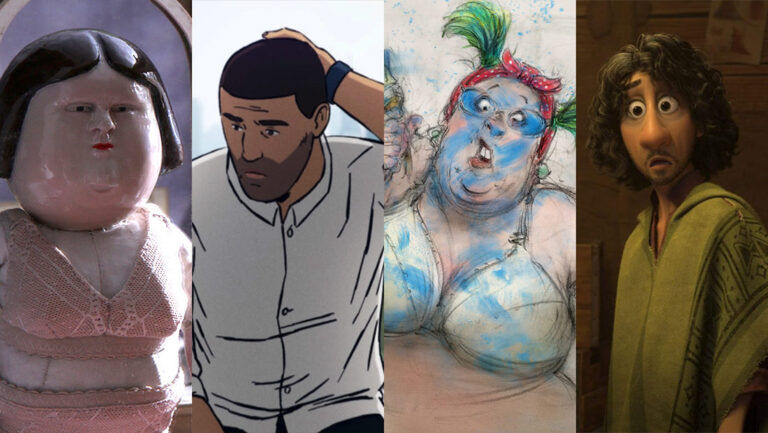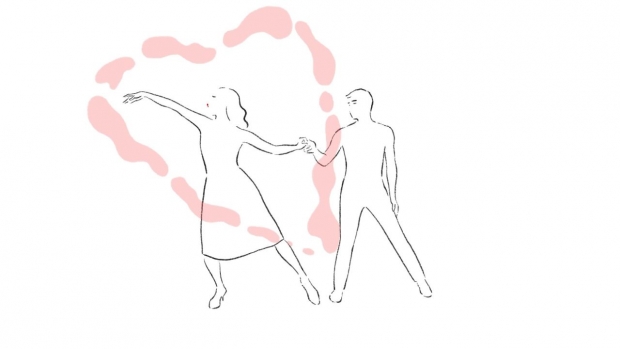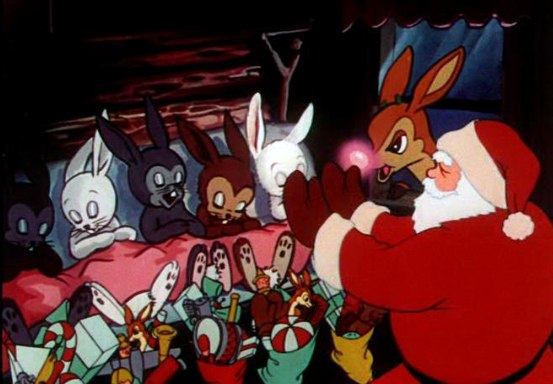Joe is upset that he hasn’t achieved his dreams.

What is ‘Soul’s’ message? It’s not what you think, and what it is is bitter to swallow.
Which begs the question of why Pixar went to all the trouble and effort to animated the city and human characters in the first place? It kind of speaks to why Pixar is making films in the first place, and as I noted in my Wolkfwalkers review, showcasing the abilities of their software seems to be the higher priority than crafting a film.
While watching this film, instead of being drawn in, I found myself asking various questions that started to peel back the facade of the movie:
- Why do I care about Joe Gardner?
- Why do I care that he hasn’t achieved his dream?
- How is he developing over the course of the film?
- What am I learning?
- How do I feel at the end?
Joe Gardner
For all that ‘Soul’ has going for it, the end result just doesn’t do the concept the justice it deserves, and a story about personal fulfillment leaves a hollow, bitter aftertaste.
Do you have dreams? Perhaps you do, or more likely, you did. Not achieving dreams is a fact of life for better or worse. Pretty much everyone fails to achieve the dreams they set out to achieve. This makes Joe’s predicament harder to relate to. We are expected to sympathise with him not in his situation at the start of the film, but rather once his opportunity starts to slip away; a key difference.
That being said, separating the themes from current circumstances is difficult. As much as the audience may want to be reassured that their lives are special, ‘Soul’ feels like a bit of a lecture on the subject instead of a compassionate discussion. Heck even Joe has his lesson literally yelled at him at the end of film.
Warning: potential spoilers below.
Every film asks its audience to care about the characters onscreen. They are introduced, encounter a problem, and you then follow along to see how said character resolves their problem and what it holds for their future life. In ‘Soul’ the reasons to care about Joe are, well, muddled at best.
Joe’s Dreams
More importantly, is he the one driving the change? NO! Number 22 develops Joe’s character for him when they’re in his body. It’s only after the fact that Joe catches on. Joe doesn’t evolve as a character, he benefits from an upgrade. He cheats!
Is Joe a substantially changed character by the end of the film? Honestly, we don’t know since the film ends right after his revelation. Is he going to be a better music teacher? He was already pretty dedicated to begin with, even without being consciously aware of it. Is he going to be a better jazz musician? Again, he’s already quite accomplished so probably not.
It’s also a shame that all of Joe’s failures happen offscreen. He’s been gigging for years, but we are only privy to the culmination of all that; not the recurring drudgery. We’re also not privy to all of Joe’s attempts to get back up after he’s been knocked down by more earthly forces. What is Joe actually made of, and how is that driving his ambition to achieve his dreams?
‘Soul’ attempts to impart a lesson. That lesson is that achieving your dreams is not really going to make you happy but appreciating the small things in life will.
Doesn’t this make Joe selfish?
Joe’s Personal Development (?)
The freeform spirit of jazz is presented with a shiny, polished veneer as if to say ‘this is what jazz is’. Why can’t the audience be left to interpret that themselves? New York City is gloriously rendered and animated. but that city is the definition of defying expectations. You can animate it all you want, but you’ll never capture the spontaneous events that touch the lives of its inhabitants in unique ways.
Why should I care about a character so clearly self-centred, selfish, and devious? It could be because that’s how the story needs to be told, but that doesn’t mean that’s where the character needs to start from!
Learning (or lack thereof)
Again, we don’t know because we aren’t shown it. How badly does he want his dream? No really, how badly does he want his dream? If he wants it bad enough he doesn’t want to die then that is one heck of a low bar. There’s a pot roast in my slow cooker right this minute and I also don’t want to die before it is ready. But if I fought against death for it, would you also believe in me without knowing how much effort I put into making it in the first place?
‘Soul’ is a welcome kind of film: original, from a creative studio known for taking risks, and it attempts to grapple with some pretty sophisticated themes for a kid’s film. All good and increasingly rare traits in a film landscape littered with franchises, sequels, and spin-offs. The film follows Joe Gardner, “a middle-school band teacher whose life hasn’t quite gone the way he expected. His true passion is jazz — and he’s good. But when he travels to another realm to help someone find their passion, he soon discovers what it means to have soul.” (Rotten Tomatoes)
Now he does learn the negative aspects of his actions and beliefs by the end of the film, and his selfishness is far from unique in filmmaking. In this film though, it means we have to watch a proto-jerk for almost 90 minutes as he lies, cheats, and finagles his way back to where he thinks he deserves to be before it sinks in.
Feels < Reals
Before we get to the point of this section, it must be noted that the film was planned and mostly produced prior to the COVID-19 epidemic. The change in circumstances leaves the film and its message a bit tone deaf to current realities through no fault of its own. Plenty of dreams are getting pushed to the back burner to make way for more pressing concerns such as making the rent or finding a job.
No. Believing in dreams and succeeding is what keeps Hollywood in business. Appreciating the small things in life also runs contrary to contemporary commercial and materialistic notions of happiness that, make no mistake, Disney and Pixar actively engage in as they do with this film, which in total irony, demands the viewers complete attention to the detriment of their real-world surroundings and actual lives. The audience receives Joe’s personal awakening while actively failing to apply it to themselves.
Now this is a fine lesson except that the message is coming from a multi-million dollar film produced by one of the largest media corporations on the planet whose sole (heh heh) mission is to produce content that releases the serotonin in your brain and prompts you to open your wallet and part with your hard earned cash. Can I take the film’s lesson to heart? Should I take the film’s lesson to heart?
For a film with that ought to universal, uplifting, and encouraging, ‘Soul’ fails to deliver for a host of petty reasons that are difficult to get past. the film breaks the cardinal rule of American cinema that states the audience should feel good about themselves afterward. I did not feel good, in fact, I felt irritated enough to write this post. ‘The Emoji Movie’, for all its faults, conveys its uplifting message in a simpler and more believable manner than ‘Soul’ and in contrast, actually encourages the audience to heed its message.
Conclusion
Is he likeable? Yes. Is he good-natured? Sure. Is he happy? No, and therein lies the rub. Joe is not happy in his job or where he is in life; common traits in protagonists sure, but the reasons (implied or explicit) are firmly projected onto the world around him. Joe’s failures are nothing to do with him and everything to do with others who’ve never given him a chance, who’ve never believed in him, or who’ve actively stood in his way. His talent is undeniable so it can’t be his fault that he hasn’t succeeded; it must be other people’s fault, right? If only they gave him his shot!
Factors far beyond his control carve out this predicament and Joe’s single-minded determination to overcome them reek of the same delusional self-important hubris that permeates the air in Silicon Valley. The fact that he does, eventually, realise the error in his ways does not excuse the fact that he spends almost the entire film doing otherwise and STILL gets to actually achieve his dream of playing jazz with a famous saxophonist; even if it is only once.





